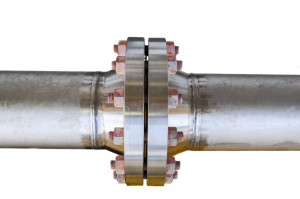In the past few decades, plumbers gave homeowners two choices: galvanized steel or copper pipes. Today, there are a number of choices available, many of which are more reliable than those stand-by choices.
There are three things to consider when selecting your pipe material.
How will it be installed?

Source: iStock.com/curraheeshutter
Copper pipes are joined together with pipe fittings sealed with solder, which is melted using a torch. Many house fires have been associated with misuse of a torch. Modern plumbing materials do not need the use of a torch, instead joining with solvent cement instead.
How long do you want it to last?
Hard water or corrosive soil conditions can erode metal pipe, especially those made with copper. To avoid the need to replace your plumbing system in just a few years, you need to go with plumbing materials that can stand up to potentially corrosive conditions. CPVC, for example, has a proven track record for being able to withstand decades of extreme water and soil conditions.
Will the pipe material affect drinking quality?
Lead piping used to be a common fixture in many older homes. Today, it is completely banned because the lead leaches into the water, poisoning the people who drank it. Pipes made from other metals, like copper or steel, can start leaching into the water as they begin to corrode. Going with a material that doesn't corrode is the better choice for your water quality over the long term.
Before you learn how to choose plumbing fixtures for a new home, learn a bit about the pipes to be installed in your home. Contact us here at Rodenhiser Plumbing, Heating & Air Conditioning.